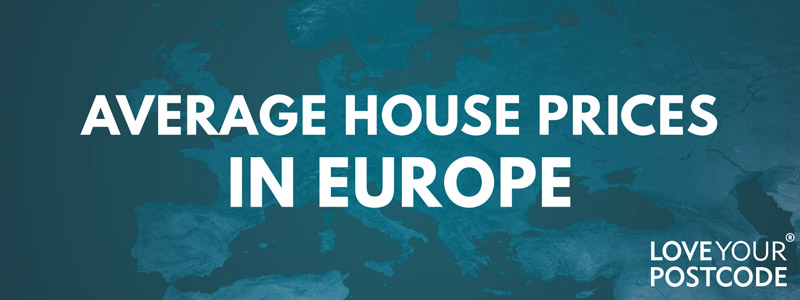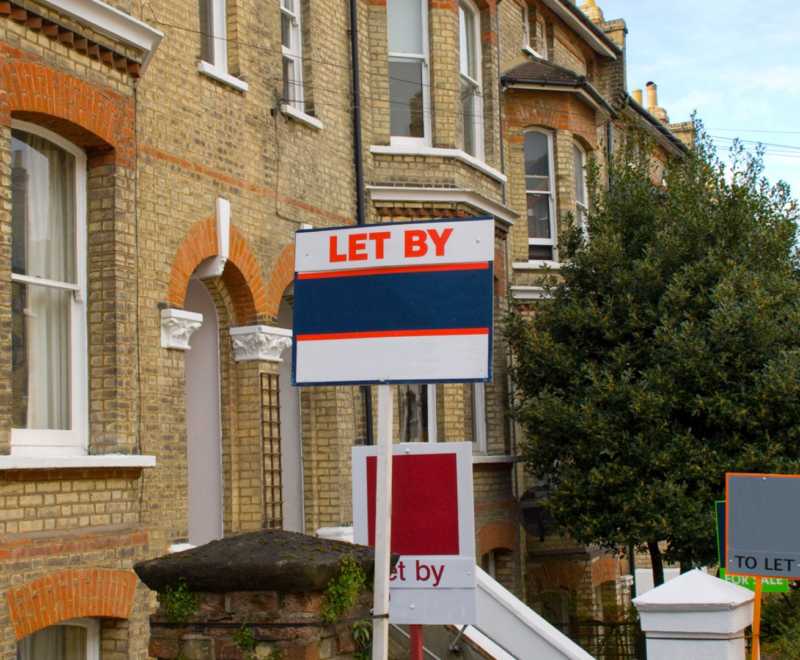These statistics show the average index points for properties located in the European countries, eurozone and European Union. This is absolutely great data to help you decide which country in Europe is the best investment location for you.
The numbers provided have been provided by Trading Economics, who gives its users accurate information for 196 countries including historical data for more than 20 million economic indicators, exchange rates, stock market indexes, government bond yields and commodity prices.
Austria. Housing Index in Austria increased to 116.51 Index Points in the fourth quarter of 2017 from 114.75 Index Points in the third quarter of 2017. Housing Index in Austria averaged 95.06 Index Points from 2009 until 2017, reaching an all time high of 116.51 Index Points in the fourth quarter of 2017 and a record low of 74.05 Index Points in the first quarter of 2010.
Belgium. Housing Index in Belgium decreased to 107.78 Index Points in the fourth quarter of 2017 from 108.18 Index Points in the third quarter of 2017. Housing Index in Belgium averaged 92.93 Index Points from 2005 until 2017, reaching an all time high of 108.18 Index Points in the third quarter of 2017 and a record low of 69.68 Index Points in the first quarter of 2005.
Bosnia And Herzegovina. Housing Index in Bosnia and Herzegovina decreased to 814 in the first quarter of 2018 from 989 in the fourth quarter of 2017. Housing Index in Bosnia and Herzegovina averaged 1109.20 from 2007 until 2018, reaching an all time high of 3669 in the fourth quarter of 2010 and a record low of 202 in the first quarter of 2011.
Bulgaria. Housing Index in Bulgaria increased to 119.53 Index Points in the fourth quarter of 2017 from 117.62 Index Points in the third quarter of 2017. Housing Index in Bulgaria averaged 105.88 Index Points from 2005 until 2017, reaching an all time high of 153.92 Index Points in the third quarter of 2008 and a record low of 76.01 Index Points in the first quarter of 2005.
Croatia. Housing Index in Croatia increased to 108.45 Index Points in the fourth quarter of 2017 from 105.13 Index Points in the third quarter of 2017. Housing Index in Croatia averaged 105.75 Index Points from 2005 until 2017, reaching an all time high of 126.34 Index Points in the third quarter of 2008 and a record low of 80.89 Index Points in the first quarter of 2005.
Cyprus. Housing Index in Cyprus increased to 105.24 Index Points in the fourth quarter of 2017 from 102.46 Index Points in the third quarter of 2017. Housing Index in Cyprus averaged 108.78 Index Points from 2005 until 2017, reaching an all time high of 130.42 Index Points in the second quarter of 2008 and a record low of 93.41 Index Points in the first quarter of 2005.
Czech Republic. Housing Index in Czech Republic increased to 122.30 Index points in the fourth quarter of 2017 from 121.20 Index points in the third quarter of 2017. Housing Index in Czech Republic averaged 99.90 Index points from 2008 until 2017, reaching an all time high of 122.30 Index points in the fourth quarter of 2017 and a record low of 93.60 Index points in the first quarter of 2013.
Denmark. Housing Index in Denmark decreased to 109.14 Index points in the fourth quarter of 2017 from 110.98 Index points in the third quarter of 2017. Housing Index in Denmark averaged 95.68 Index points from 2005 until 2017, reaching an all time high of 110.98 Index points in the third quarter of 2017 and a record low of 75.49 Index points in the first quarter of 2005.
Estonia. Housing Index in Estonia increased to 113.49 Index Points in the fourth quarter of 2017 from 112.06 Index Points in the third quarter of 2017. Housing Index in Estonia averaged 85.33 Index Points from 2005 until 2017, reaching an all time high of 113.49 Index Points in the fourth quarter of 2017 and a record low of 50.59 Index Points in the first quarter of 2005.
Euro Area. Housing Index In the Euro Area increased to 109.42 Index Points in the fourth quarter of 2017 from 108.46 Index Points in the third quarter of 2017. Housing Index in the Euro Area averaged 100.51 Index Points from 2005 until 2017, reaching an all time high of 109.42 Index Points in the fourth quarter of 2017 and a record low of 89.65 Index Points in the first quarter of 2005.
European Union. Housing Index in European Union increased to 110.71 Index Points in the fourth quarter of 2017 from 109.92 Index Points in the third quarter of 2017. Housing Index in European Union averaged 98.37 Index Points from 2005 until 2017, reaching an all time high of 110.71 Index Points in the fourth quarter of 2017 and a record low of 83.53 Index Points in the first quarter of 2005.
Finland. Housing Index in Finland decreased to 101.83 Index points in the fourth quarter of 2017 from 102.18 Index points in the third quarter of 2017. Housing Index in Finland averaged 93.27 Index points from 2005 until 2017, reaching an all time high of 102.68 Index points in the second quarter of 2017 and a record low of 73.62 Index points in the first quarter of 2005.
France. Housing Index in France increased to 105.78 Index points in the fourth quarter of 2017 from 105.69 Index points in the third quarter of 2017. Housing Index in France averaged 101.30 Index points from 2006 until 2017, reaching an all time high of 107.58 Index points in the third quarter of 2011 and a record low of 93.63 Index points in the second quarter of 2006.
Germany. Housing Index in Germany increased to 146.79 Index Points in May from 146.27 Index Points in April of 2018. Housing Index in Germany averaged 110.90 Index Points from 1991 until 2018, reaching an all time high of 154.90 Index Points in January of 1991 and a record low of 95.50 Index Points in May of 2009.
Greece. Housing Index in Greece decreased to 58.90 Index Points in the first quarter of 2018 from 59.10 Index Points in the fourth quarter of 2017. Housing Index in Greece averaged 80.15 Index Points from 2006 until 2018, reaching an all time high of 102.20 Index Points in the third quarter of 2008 and a record low of 58.80 Index Points in the third quarter of 2017.
Hungary. Housing Index in Hungary increased to 125.83 Index points in the fourth quarter of 2017 from 125.09 Index points in the third quarter of 2017. Housing Index in Hungary averaged 97.91 Index points from 2007 until 2017, reaching an all time high of 125.83 Index points in the fourth quarter of 2017 and a record low of 84.13 Index points in the fourth quarter of 2013.
Iceland. Housing Index in Iceland increased to 428.80 Index Points in June from 424 Index Points in May of 2018. Housing Index in Iceland averaged 227.43 Index Points from 2000 until 2018, reaching an all time high of 428.80 Index Points in June of 2018 and a record low of 100 Index Points in March of 2000.
Ireland. Residential property prices in Ireland rose by 13 percent in the year to April 2018, following a downwardly revised 12.6 percent growth in the previous month. It was the biggest gain in residential cost since May 2015, as apartments prices went up at a faster pace (16.3 percent vs 14.3 percent) while house price growth eased slightly (12.4 percent vs 12.5 percent).
In Dublin, residential property prices advanced 12.5 percent (vs 11.7 percent in March) while in the rest of the country prices rose 13.6 percent, the same as in March. Still, the national index is 21.1 percent lower than its highest level in 2007. On a monthly basis, house prices increased 0.7 percent, after a 0.6 percent gain in March. Housing Index in Ireland averaged 91.59 Index Points from 2005 until 2018, reaching an all time high of 131 Index Points in April of 2007 and a record low of 58.70 Index Points in March of 2013.
Italy. Housing Index in Italy increased to 98.70 Index Points in the fourth quarter of 2017 from 98.60 Index Points in the third quarter of 2017. Housing Index in Italy averaged 106.93 Index Points from 2010 until 2017, reaching an all time high of 117.70 Index Points in the second quarter of 2011 and a record low of 98.60 Index Points in the third quarter of 2017.
Latvia. Housing Index in Latvia increased to 119.90 Index Points in the fourth quarter of 2017 from 119.72 Index Points in the third quarter of 2017. Housing Index in Latvia averaged 105.76 Index Points from 2006 until 2017, reaching an all time high of 157.05 Index Points in the first quarter of 2008 and a record low of 78.52 Index Points in the first quarter of 2010.
Lithuania. Housing Index in Lithuania increased to 116.94 Index points in the fourth quarter of 2017 from 116.66 Index points in the third quarter of 2017. Housing Index in Lithuania averaged 100.40 Index points from 2006 until 2017, reaching an all time high of 134.49 Index points in the second quarter of 2008 and a record low of 82.75 Index points in the first quarter of 2010.
Luxembourg. Housing Index in Luxembourg increased to 113.57 Index points in the fourth quarter of 2017 from 112.28 Index points in the third quarter of 2017. Housing Index in Luxembourg averaged 89.17 Index points from 2007 until 2017, reaching an all time high of 113.57 Index points in the fourth quarter of 2017 and a record low of 72.67 Index points in the first quarter of 2007.
Macedonia. Housing Index in Macedonia increased to 95.24 Index Points in the first quarter of 2018 from 94.47 Index Points in the fourth quarter of 2017. Housing Index in Macedonia averaged 85.83 Index Points from 2000 until 2018, reaching an all time high of 103.06 Index Points in the fourth quarter of 2008 and a record low of 56.40 Index Points in the first quarter of 2000.
Malta. Housing Index in Malta increased to 115.65 Index Points in the fourth quarter of 2017 from 112.80 Index Points in the third quarter of 2017. Housing Index in Malta averaged 90.27 Index Points from 2005 until 2017, reaching an all time high of 115.65 Index Points in the fourth quarter of 2017 and a record low of 56.48 Index Points in the second quarter of 2005.
Montenegro. Housing Index in Montenegro decreased to 1079 EUR/SQ. METRE in the fourth quarter of 2017 from 1142 EUR/SQ. METRE in the third quarter of 2017. Housing Index in Montenegro averaged 1161 EUR/SQ. METRE from 2006 until 2017, reaching an all time high of 1530 EUR/SQ. METRE in the fourth quarter of 2008 and a record low of 975 EUR/SQ. METRE in the fourth quarter of 2016.
Netherlands. Housing Index in Netherlands increased to 121.70 Index points in May from 120.60 Index points in April of 2018. Housing Index in Netherlands averaged 93.60 Index points from 1995 until 2018, reaching an all time high of 121.70 Index points in May of 2018 and a record low of 41.30 Index points in January of 1995.
Norway. Housing Index in Norway increased to 112 Index Points in the first quarter of 2018 from 109.90 Index Points in the fourth quarter of 2017. Housing Index in Norway averaged 58.45 Index Points from 1992 until 2018, reaching an all time high of 114.50 Index Points in the second quarter of 2017 and a record low of 17.80 Index Points in the first quarter of 1993.
Poland. Housing Index in Poland increased to 107.86 Index Points in the fourth quarter of 2017 from 106.50 Index Points in the third quarter of 2017. Housing Index in Poland averaged 102.12 Index Points from 2010 until 2017, reaching an all time high of 107.86 Index Points in the fourth quarter of 2017 and a record low of 97.15 Index Points in the first quarter of 2014.
Portugal. Housing Index in Portugal increased to 125.58 Index points in the first quarter of 2018 from 121.06 Index points in the fourth quarter of 2017. Housing Index in Portugal averaged 103.09 Index points from 2008 until 2018, reaching an all time high of 125.58 Index points in the first quarter of 2018 and a record low of 92.25 Index points in the second quarter of 2013.
Romania. Housing Index in Romania increased to 113.75 Index Points in the fourth quarter of 2017 from 112.44 Index Points in the third quarter of 2017. Housing Index in Romania averaged 107.55 Index Points from 2009 until 2017, reaching an all time high of 132.70 Index Points in the first quarter of 2009 and a record low of 96.01 Index Points in the third quarter of 2014.
Russia. Russia’s price index in the primary housing market increased by 1 percent in 2017, rebounding from a 0.4 percent drop in 2016. It was the first yearly growth in house prices since 2014. Housing Index in Russia averaged 16.05 percent from 1998 until 2017, reaching an all time high of 56.90 percent in 1998 and a record low of -7.60 percent in 2009.
Slovakia. Housing Index in Slovakia increased to 116.16 Index Points in the fourth quarter of 2017 from 115.62 Index Points in the third quarter of 2017. Housing Index in Slovakia averaged 98.62 Index Points from 2006 until 2017, reaching an all time high of 120.39 Index Points in the second quarter of 2008 and a record low of 71.76 Index Points in the first quarter of 2006.
Slovenia. Housing Index in Slovenia increased to 116.07 Index points in the fourth quarter of 2017 from 111.89 Index points in the third quarter of 2017. Housing Index in Slovenia averaged 112.47 Index points from 2007 until 2017, reaching an all time high of 131.52 Index points in the third quarter of 2008 and a record low of 97.77 Index points in the third quarter of 2014.
Spain. Housing Index in Spain increased to 1566.60 EUR/SQ. METRE in the first quarter of 2018 from 1558.70 EUR/SQ. METRE in the fourth quarter of 2017. Housing Index in Spain averaged 1159.22 EUR/SQ. METRE from 1987 until 2018, reaching an all time high of 2101.40 EUR/SQ. METRE in the first quarter of 2008 and a record low of 266.43 EUR/SQ. METRE in the first quarter of 1987.
Sweden. Housing Index in Sweden increased to 230.06 Index points in May from 229.88 Index points in April of 2018. Housing Index in Sweden averaged 161.57 Index points from 2005 until 2018, reaching an all time high of 243.37 Index points in August of 2017 and a record low of 100 Index points in January of 2005.
Switzerland. Housing Index in Switzerland increased to 167.29 Index Points in the first quarter of 2018 from 167.12 Index Points in the fourth quarter of 2017. Housing Index in Switzerland averaged 103.25 Index Points from 1970 until 2018, reaching an all time high of 167.29 Index Points in the first quarter of 2018 and a record low of 35.65 Index Points in the first quarter of 1970.
Turkey. Housing Index in Turkey increased to 259.60 Index points in April from 256 Index points in March of 2018. Housing Index in Turkey averaged 175 Index points from 2002 until 2018, reaching an all time high of 1358 Index points in January of 2002 and a record low of 96.92 Index points in January of 2010.
United Kingdom. The Halifax House Price Index in the United Kingdom increased 1.8 percent year-on-year in the three months to June of 2018, following a 1.9 percent gain in the previous three-month period, matching market expectations.
Persistent low mortgage rates, great affordability levels, a robust labour market, and the continuing shortage of properties for sale should continue to support price growth. On a monthly basis, house prices rose 0.3 percent in June, easing from an upwardly revised 1.7 percent jump in May.
Housing Index in the United Kingdom averaged 367.55 Index Points from 1983 until 2018, reaching an all time high of 738.30 Index Points in March of 2018 and a record low of 96.10 Index Points in January of 1983.
You may have often heard about SSTC in the property world and wondered what it means. Read our article SSTC meaning and find out what signifies.
Love Your Postcode Estate Agents in Birmingham gives your home maximum exposure online & offline, getting it more views from potential applicants, therefore more offers, and ultimately the highest possible finishing value. This means you end up with more money in your pocket and you enjoy a higher quality service. Call us on 0800 862 0870 or book a free valuation today.
By









